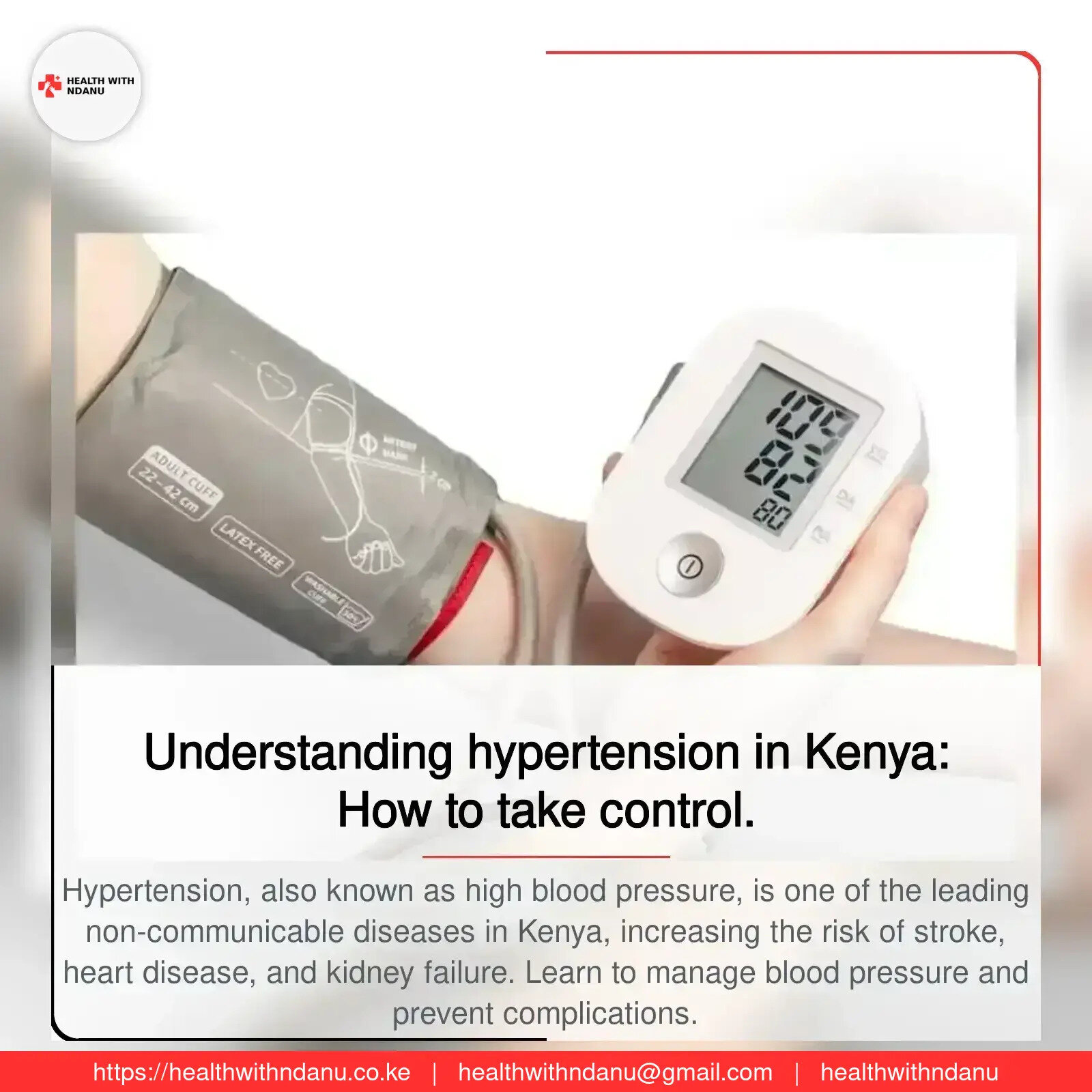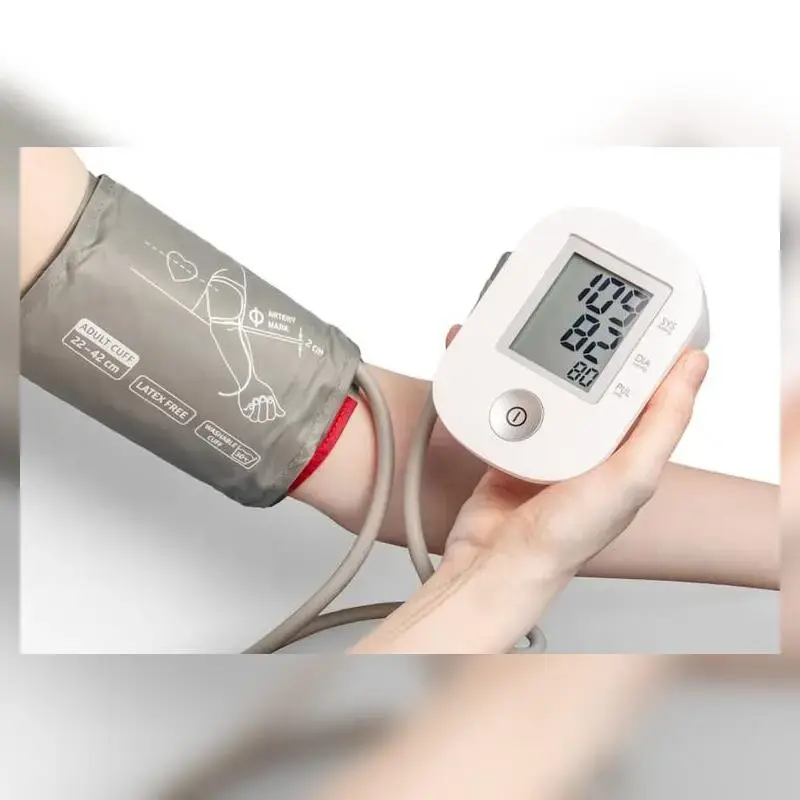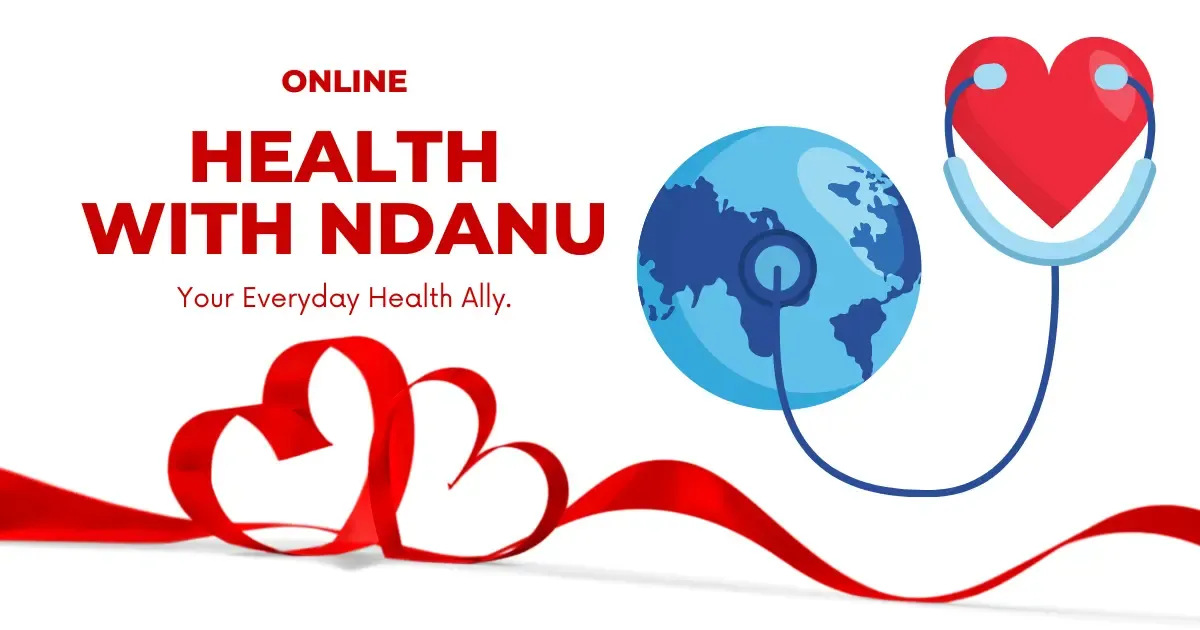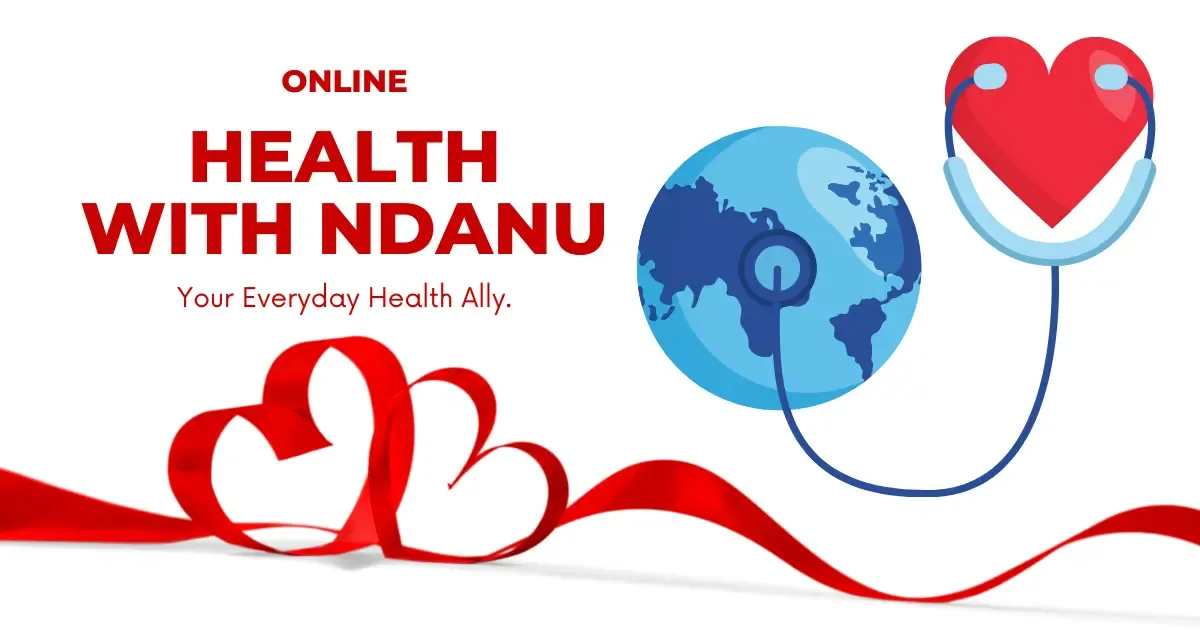Understanding hypertension in Kenya: How to take control.
- by Diana Ndanu
- 31 December, 2024
- 0 Comments
- 7 Mins



Introduction
Hypertension, often referred to as high blood pressure, is one of the most prevalent yet preventable health conditions worldwide. Despite its silent nature, this condition can lead to severe health complications if left unmanaged. But don't worry—understanding the causes, symptoms, and treatments can empower you to take charge of your health. Let's dive in and talk about hypertension in a conversational, easy-to-digest way.
What is Hypertension?
Hypertension happens when the pressure of your blood pushing against the walls of your arteries remains consistently too high. Think of it as your heart working overtime to pump blood through your body. Over time, this extra effort can damage your blood vessels, leading to health issues like heart disease, stroke, and kidney failure.
Blood pressure is measured in two numbers:
- Systolic Pressure: The top number, which measures the force of blood when your heart beats.
- Diastolic Pressure: The bottom number, which measures the pressure in your arteries when your heart rests between beats.
- A normal blood pressure reading is usually around 120/80 mmHg. Anything consistently above 130/80 mmHg is considered high blood pressure.
Why is Hypertension Called the "Silent Killer"?
One of the scariest things about hypertension is that it often comes with no symptoms. Many people don’t realize they have high blood pressure until they experience complications like a heart attack or stroke. That’s why regular blood pressure checks are so important—it’s the only way to know your numbers and catch any issues early.
What Are the Types of Hypertension?
There are two main types of hypertension:
1. Primary (Essential) Hypertension
This is the most common type.
It develops gradually over time without a specific cause.
Lifestyle factors like diet, exercise, and stress levels play a significant role.
2. Secondary Hypertension
This type is caused by an underlying medical condition or medication.
Conditions like kidney disease, hormonal disorders, or sleep apnea can lead to secondary hypertension.
It often appears suddenly and may be more severe than primary hypertension.
What Causes Hypertension?
Several factors contribute to high blood pressure, and many of them are within your control. Here’s a breakdown:
1. Unhealthy Diet
Diets high in salt (sodium), saturated fats, and processed foods can raise your blood pressure.
2. Lack of Physical Activity
A sedentary lifestyle weakens your heart and blood vessels, making it harder for your body to pump blood efficiently.
3. Obesity
Extra body weight forces your heart to work harder, increasing blood pressure.
4. Smoking and Alcohol
Tobacco narrows blood vessels, while excessive alcohol intake can damage your heart over time.
5. Chronic Stress
Stress triggers hormones that temporarily raise blood pressure. Prolonged stress can make this elevation permanent.
6. Genetics and Family History
If hypertension runs in your family, you’re more likely to develop it.
7. Medical Conditions
Diabetes, kidney disease, and thyroid problems can contribute to high blood pressure.
How Does Hypertension Affect Your Body?
Unchecked hypertension can wreak havoc on various organs. Here’s how:
Heart: Increases the risk of heart attack, heart failure, and arrhythmias.
Brain: Leads to stroke or cognitive decline.
Kidneys: Causes kidney damage or failure over time.
Eyes: Damages blood vessels in the eyes, potentially causing vision loss.
What Are the Symptoms of Hypertension?
Most people with high blood pressure have no noticeable symptoms. However, severe cases might cause:
- Headaches
- Shortness of breath
- Nosebleeds
- Chest pain
- Dizziness
If you experience any of these symptoms, seek medical attention immediately.
How to Prevent and Manage Hypertension
The good news? Hypertension is preventable and manageable. Here’s how:
1. Adopt a Heart-Healthy Diet
- Follow the DASH Diet (Dietary Approaches to Stop Hypertension).
- Focus on fruits, vegetables, whole grains, lean proteins, and low-fat dairy.
- Limit salt intake to less than 1,500 mg per day.
2. Stay Physically Active
- Aim for at least 150 minutes of moderate exercise (like walking or cycling) per week.
- Strength training twice a week also helps.
3. Maintain a Healthy Weight
Losing even 5-10% of your body weight can significantly lower blood pressure.
4. Quit Smoking
Smoking damages blood vessels and increases blood pressure. Seek support to quit.
5. Limit Alcohol Intake
No more than one drink per day for women and two for men.
6. Manage Stress
- Practice relaxation techniques like yoga, meditation, or deep breathing.
- Prioritize sleep and avoid overloading your schedule.
7. Monitor Your Blood Pressure
- Use a home blood pressure monitor to track your numbers regularly.
- Keep a record and share it with your doctor.
8. Take Medications if Needed
If lifestyle changes aren’t enough, your doctor might prescribe medication.
Common medications include:
- Diuretics (to remove excess salt and water)
- ACE inhibitors (to relax blood vessels)
- Beta-blockers (to slow the heart rate)
And others depending on your needs
Important: Never stop taking your medication unless your doctor says it’s okay — even if you feel fine.
When to See a Doctor
If you consistently record blood pressure readings above 130/80 mmHg, schedule a visit with your healthcare provider. Additionally, seek immediate care if you experience:
- Severe chest pain
- Sudden vision changes
- Difficulty breathing
These could be signs of a hypertensive crisis, which requires urgent attention.
Hypertension in Kenya: What You Should Know
In Kenya, many people are unaware they have high blood pressure until it’s too late. Regular community screening, awareness campaigns, and improved access to care are crucial — especially in rural and underserved areas.
If you're a Community Health Promoter like me or know someone who is, encourage regular BP checks and educate others in your village or estate.
Real Stories, Real Change
Take Mary from Matisi,kitale — a 45-year-old mother of four who discovered her BP was dangerously high during a church health drive. With dietary changes, regular walks, and daily medication, she brought her pressure down and now feels better than she has in years.
Or James, a boda boda rider in Kisumu ndogo,Kitale, who started checking his BP weekly at his home by a CHP, He’s now a local advocate, reminding friends not to ignore “silent” health issues.
Key Takeaways
- Hypertension often has no symptoms — check your blood pressure regularly.
- A healthy lifestyle can prevent and manage high blood pressure.
- Medication, if prescribed, must be taken consistently.
- Support from family, community, and healthcare providers is essential.
Final Word
Hypertension doesn’t have to control your life — you can control it.
Start by checking your numbers, eating healthier, staying active, and talking to a health provider. Whether you're in Nairobi, Mombasa, Eldoret, or the rural heartlands, taking small steps today could save your life tomorrow.
Final Thoughts
Hypertension is a silent yet serious condition that can sneak up on you. But here’s the silver lining: you have the power to prevent and manage it. By adopting healthy habits, monitoring your blood pressure, and staying informed, you can reduce your risk and live a longer, healthier life.
Take control today—start small, stay consistent, and make your health a priority. After all, your heart deserves the best care you can give it!
If you have questions about hypertension or want personalized advice, don’t hesitate to reach out to a healthcare professional.
Would you like help tracking your blood pressure or designing a lifestyle plan? Let’s chat!
Got Your Own Experience? Share with us
Kategoria Maarufu
Blogu Zinazotembelewa Zaidi
Daily Newsletter
Get all the top stories from Blogs to keep track.



